Last Updated: December 2023.
Black Hat SEO refers to unethical and manipulative practices employed to boost a website’s search engine ranking. These techniques violate search engine guidelines and are intended to trick or manipulate algorithms rather than provide valuable and relevant content to users.
Black Hat SEO tactics often prioritize short-term gains in search visibility but come with the risk of severe penalties, including being banned from search engine results. It stands in contrast to White Hat SEO, which focuses on ethical strategies that prioritize user experience and adhere to search engine guidelines for sustainable, long-term success.
Unmasking Black Hat SEO: Risks, Reporting, and Ethical Alternatives

The Importance of Understanding Ethical SEO Practices
Is Black Hat SEO Important?
Why Some May be Tempted to Use Black Hat Techniques
The question of whether Black Hat SEO is important is subjective and dependent on the goals and perspectives of website owners or marketers.
Some may be enticed by Black Hat techniques due to the promise of quick results and immediate gains in search engine rankings. In highly competitive industries, the pressure to keep up or outperform rivals who may be employing similar tactics can be a driving factor.
Additionally, the desire for instant gratification and impatience with the time required for ethical SEO practices, such as content creation and natural link building, may lead individuals or businesses toward Black Hat methods. Misinformation, unrealistic promises, and a lack of understanding regarding the potential consequences can also contribute to the allure of Black Hat SEO.
In some cases, desperation to recover from penalties incurred through Black Hat practices can perpetuate a cycle of manipulative techniques. For those with a focus on short-term goals, resource limitations, or a belief that Black Hat SEO is a cost-effective shortcut, the temptation may be strong.
However, it’s crucial to recognize that while Black Hat techniques may offer immediate benefits, the associated risks, including penalties, legal repercussions, and harm to online reputation, often outweigh the perceived advantages.
Ultimately, the choice between ethical and Black Hat SEO reflects a fundamental decision about the nature of the online presence one aims to establish: a foundation built on trust, sustainability, and long-term success, or one that risks quick gains at the expense of potentially severe consequences.
The Risks of Black Hat SEO
#1 Search Engine Penalties and Potential Bans:
- Black Hat SEO techniques violate search engine guidelines, making websites susceptible to penalties. Search engines, notably Google, have sophisticated algorithms that can detect manipulative practices. Penalties range from a drop in rankings to complete removal from search results, severely impacting online visibility.
#2 Damage to Online Reputation and User Trust:
- Engaging in Black Hat SEO can harm the reputation of a website or business. Users trust search engines to deliver reliable and relevant results. When a website is associated with manipulative practices, users may lose trust, leading to decreased credibility, user engagement, and brand loyalty.
#3 Legal Consequences and Ethical Considerations:
- Black Hat SEO practices can have legal repercussions. Actions such as plagiarism, copyright infringement, or engaging in deceptive practices may lead to legal actions. Additionally, ethical considerations come into play, as these practices go against industry standards and guidelines, potentially damaging relationships with partners, customers, and the broader online community.
Common Techniques to Avoid
Link-Related Techniques
Malicious or Spammy Backlinks:
- Acquiring links from low-quality, unrelated, or spammy websites in large quantities is a Black Hat SEO tactic. This can include buying links or participating in link schemes.
Footer Links:
- Links placed in website footers solely for SEO purposes may be seen as manipulative. Search engines prefer natural and contextually relevant links.
Overused Anchor Text:
- Over-optimized anchor text may be seen as an attempt to manipulate rankings. Diversifying anchor text is generally considered a good practice.
Private Blog Networks (PBNs):
- Using PBNs to manipulate search rankings is against search engine guidelines. Search engines are actively working to identify and penalize such networks.
Link Schemes:
- Participating in schemes to manipulate link popularity is against guidelines. Focus on earning natural, high-quality links.
Link Farming:
- Creating a network of websites that link to each other, artificially inflating the number of backlinks to manipulate search engine rankings.
Sneaky Redirects:
- Redirects that deceive users or search engines can result in penalties. Transparent and relevant redirects are recommended.
Hidden Links:
- Hidden links are against search engine guidelines. Algorithms are designed to detect such practices, and penalties can be imposed.
Free Products for Links:
- Exchanging free products or services for links without proper disclosure is considered a form of link manipulation and may be against search engine guidelines.
Guest Posting Networks:
- Large-scale guest posting solely for the purpose of link building may be considered a link scheme and is discouraged.
Content-Related Techniques
Keyword Stuffing:
- This involves excessively using keywords in the content or meta tags to manipulate search engine rankings.
Plagiarized or Duplicated Content:
- Duplicate content may result in search engines choosing one version over others, impacting the visibility of your pages.
Hidden Content – Text and Links:
- Text or links may be hidden from visitors but still present for search engines. This can be achieved by making the text the same colour as the background or using tiny font sizes.
Structured Data/Rich Snippets Spam:
- Misusing structured data to display misleading information in rich snippets is against guidelines. It can lead to penalties.
Cloaking:
- Cloaking involves presenting different content or URLs to search engines and users. The idea is to deceive search engines about the actual content of a page.
Doorway Pages:
- Doorway pages are created solely for search engines, not for users. They are optimized to rank high and then redirect visitors to another page.
Splogs (Spam Blogs):
- Spam blogs are still a concern, but search engines have improved at detecting and penalizing them. Genuine, valuable content is preferred.
Comment Spams:
- Search engines are more adept at recognizing and filtering out comment spam. Use moderation tools and plugins to manage comments.
Page Hijacking:
- This practice is not effective and could lead to penalties. Search engines aim to provide users with accurate and relevant information.
Referrer Spam / Log Spamming:
- Referrer spam may not directly impact search rankings, but it can distort website analytics. Most analytics tools have implemented measures to combat this.
Hidden, Invisible Text:
- Such practices are against guidelines. Search engines are adept at detecting hidden text, and penalties may apply.
Meta Tags Stuffing:
- Overloading meta tags with keywords is not recommended. Meta tags should accurately represent the content of the page.
Article Spinning:
- Article spinning is a Black Hat SEO technique that involves using automated software to generate multiple versions of an article by replacing words with synonyms or restructuring sentences, with the aim of creating seemingly unique content to deceive search engines and manipulate rankings. This practice, however, often results in low-quality and incoherent content that fails to provide value to users.
Poor quality content:
Other Techniques
Content Automation:
- Using automated tools to generate content for your website with the goal of increasing the number of indexed pages, even if the content is low-quality or irrelevant.
Negative SEO (Reporting a Competitor):
- Engaging in negative SEO tactics, such as reporting competitors, is unethical and can have legal consequences.
Groupon’s Bait and Switch:
- Bait-and-switch tactics, such as misleading offers, can harm your site’s credibility and reputation.
Copying Competitor Content:
- Plagiarism is not only unethical but can also lead to legal consequences. Focus on creating original content.
Expired Domains and their Link Value:
- The value of links from expired domains depends on the context. If the domain has a good reputation, it might have some value, but generally, relevance is crucial.
Cybersquatting and URL hijacking:
- Unethical practices like cybersquatting are generally discouraged. Building a brand with a relevant domain is more beneficial.
Hacked Website:
- A hacked website can result in various issues, including a drop in rankings. It’s essential to address security issues promptly.
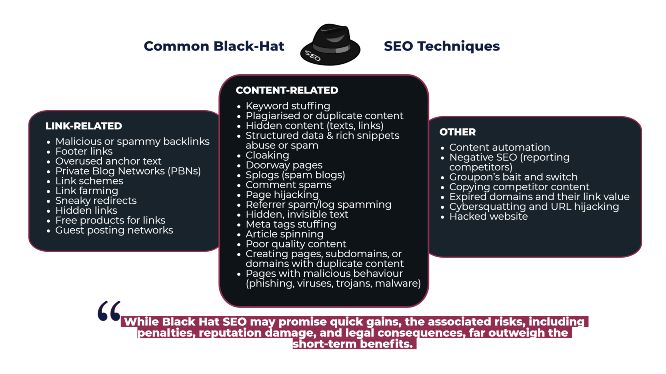
How To Report Black Hat SEO
Encouraging a Community of Ethical Online Practices
Reporting Black Hat SEO activities is crucial for maintaining the integrity of online spaces and search engine results. Encouraging a community of ethical online practices involves raising awareness about the negative impact of manipulative techniques and fostering a sense of responsibility among website owners, marketers, and users.
Reporting mechanisms provided by search engines, such as Google’s Webmaster Tools, allow individuals to flag instances of Black Hat SEO, aiding search engines in identifying and penalizing violators.
By actively participating in the reporting process, individuals contribute to a cleaner and more trustworthy online environment, reinforcing the importance of ethical SEO practices and promoting a collective commitment to upholding the standards set by search engines for the benefit of users and the broader online community.
Reporting Mechanisms Provided by Search Engines
Here’s a quick list:
- Google Webmaster Tools / Search Console
- Bing Webmaster Tools
- Yandex Webmaster
- Report Spam and Search Quality Issues (Google)
- Microsoft Bing Content Removal Tool
- Yandex Search Engine Complaint Form
- Google Safe Browsing Site Status Tool
- DMCA Takedown Request (for copyright infringement)
The Role of Webmaster Tools in Identifying and Reporting Issues
Webmaster tools play a vital role in identifying and reporting issues by providing website owners with insights into their site’s performance. They offer functionalities to diagnose problems, monitor search visibility, and receive alerts about potential issues.
Additionally, these tools often include reporting features, enabling users to submit sitemaps, address crawl errors, and report instances of Black Hat SEO, ensuring a more transparent and secure online environment.
Why Should You Avoid Black Hat SEO?
Avoiding Black Hat SEO is imperative for several reasons.
Engaging in manipulative practices can have a lasting impact on a website’s authority, hindering its potential for sustainable growth. By prioritizing a user-centric approach and building trust through ethical strategies, websites can establish credibility and maintain positive relationships with users.
Adhering to search engine guidelines not only ensures alignment with industry standards but also safeguards against penalties and the risk of being delisted from search results, ultimately paving the way for a more enduring and reputable online presence.
The Blurred Lines of Grey Hat SEO
Navigating the blurred lines of Grey Hat SEO requires careful consideration. Grey Hat techniques fall between ethical and manipulative practices, introducing ambiguity to the SEO landscape.
While some strategies may push boundaries without overtly violating guidelines, they can still risk penalties and harm a website’s reputation.
Striking a balance between innovation and adherence to search engine standards becomes crucial. Understanding the potential risks involved in Grey Hat SEO is essential, as it allows website owners to make informed decisions that align with their long-term goals while avoiding the pitfalls associated with more black-hat approaches.
Difference Between White, Grey, and Black Hat SEO
Understanding the differences between White, Grey, and Black Hat SEO is pivotal for crafting a strategic online presence.
White Hat SEO focuses on ethical strategies, prioritizing user experience and adherence to search engine guidelines.
In contrast, Grey Hat SEO operates in a middle ground, employing techniques that may push ethical boundaries without explicitly violating guidelines.
Black Hat SEO, on the other hand, involves manipulative practices that blatantly breach search engine rules, risking severe penalties.
Recognizing these distinctions is crucial for making informed decisions about the type of online presence one aims to establish, whether it be built on trust and sustainability or plagued by potential consequences and reputational damage.
How To Avoid Black Hat SEO
Successfully avoiding Black Hat SEO involves a proactive and principled approach.
Emphasizing content quality and relevance is paramount, ensuring that the website provides genuine value to users.
Building natural, high-quality backlinks through ethical outreach strategies and partnerships contributes to a robust online presence.
Staying informed about search engine guidelines and algorithm updates is crucial to adapt strategies accordingly. Regular audits and compliance checks help identify and rectify any unintentional deviations from ethical practices.
By fostering a commitment to transparency, integrity, and adherence to industry standards, website owners can create a resilient and trustworthy online presence while steering clear of the pitfalls associated with Black Hat SEO.
How do Search Engines Penalize Black Hat SEO?
Search engines employ various mechanisms to penalize Black Hat SEO practices, aiming to maintain the quality of search results and user experience.
Algorithms continuously evolve to detect manipulative tactics, leading to penalties such as drops in search rankings or complete removal from results.
Search engines may issue manual penalties after human reviews, targeting specific violations. The penalties are designed to deter unethical practices, ensuring that websites adhering to guidelines are rewarded with higher visibility.
Regular algorithm updates and advancements in technology enable search engines to effectively penalize Black Hat SEO, reinforcing the importance of ethical strategies for sustainable and long-term online success.
Examples
There have been several instances where well-known brands faced penalties from search engines due to various reasons, including engaging in Black Hat SEO practices. Here are a couple of historical examples:
- J.C. Penney (2011): In a well-publicized case, J.C. Penney faced a significant drop in search rankings after it was discovered that the company had been involved in a link-building scheme. The scheme included the use of paid links to manipulate search engine rankings. Google took action by penalizing J.C. Penney, leading to a noticeable decline in its organic search visibility.
- BMW (2006): BMW experienced a Google penalty for using doorway pages to manipulate search rankings. Doorway pages are created to target specific search queries but offer little value to users. Google temporarily removed BMW’s website from its search results as a response to this violation.
These examples underscore the importance of adhering to ethical SEO practices and the potential consequences that even well-established brands may face when engaging in manipulative tactics.
It’s essential for businesses to stay informed about search engine guidelines and prioritize user-focused strategies to avoid penalties and maintain a positive online reputation.
We Teach
Marketing & Business
Live on Zoom
Your host: Tasos Perte Tzortzis
Schedule an interview so we can evaluate where you are right now, your needs and goals, and we'll give you a detailed analysis of how the workshops work
*30-Day Free Trial
Conclusion
Let’s wrap things up!
The world of SEO is dynamic, with constant changes and evolving guidelines set by search engines. The choice between ethical SEO practices and Black Hat techniques holds profound implications for the success and sustainability of an online presence.
While Black Hat SEO may promise quick gains, the associated risks, including penalties, reputation damage, and legal consequences, far outweigh the short-term benefits.
Prioritizing user-centric, transparent, and guideline-compliant strategies not only helps in building trust and authority but also ensures a resilient and enduring online presence. Staying informed, adapting to algorithm updates, and fostering a commitment to ethical practices are key principles for navigating the complexities of SEO and achieving long-term success in the digital landscape.

Tasos Perte Tzortzis
Business Organisation & Administration, Marketing Consultant, Creator of the "7 Ideals" Methodology
Although doing traditional business offline since 1992, I fell in love with online marketing in late 2014 and have helped hundreds of brands sell more of their products and services. Founder of WebMarketSupport, Muvimag, Summer Dream.
Reading, arts, science, chess, coffee, tea, swimming, Audi, and family comes first.






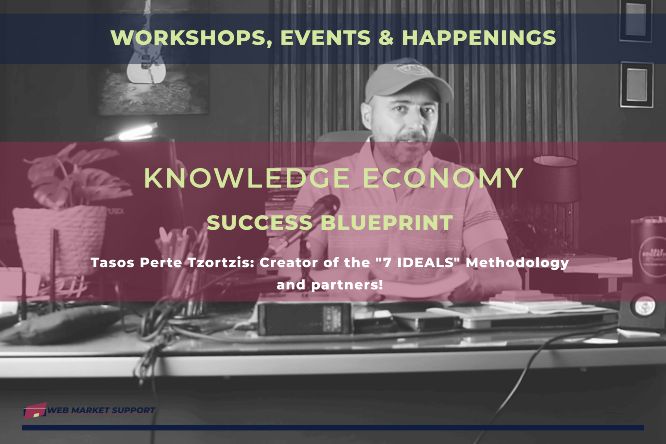
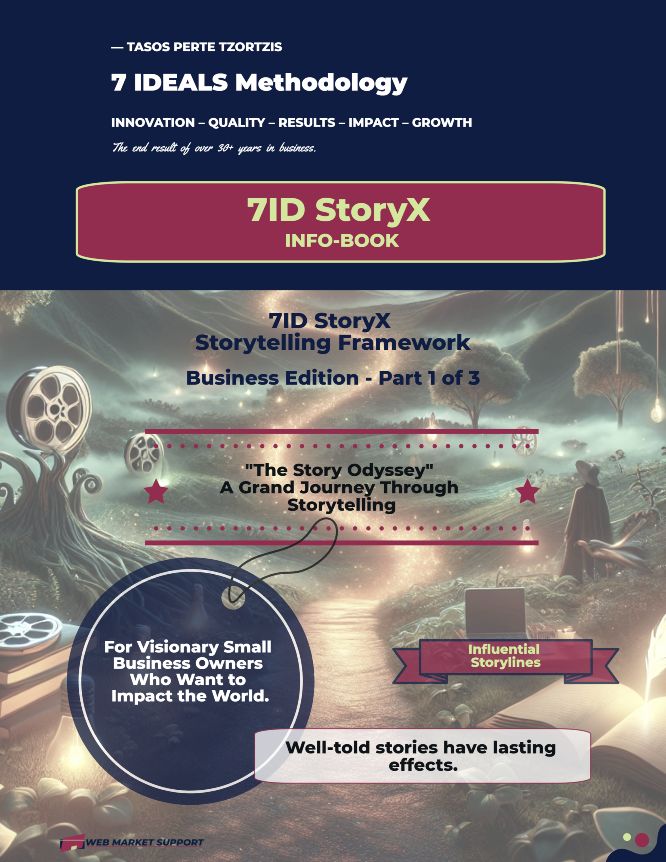
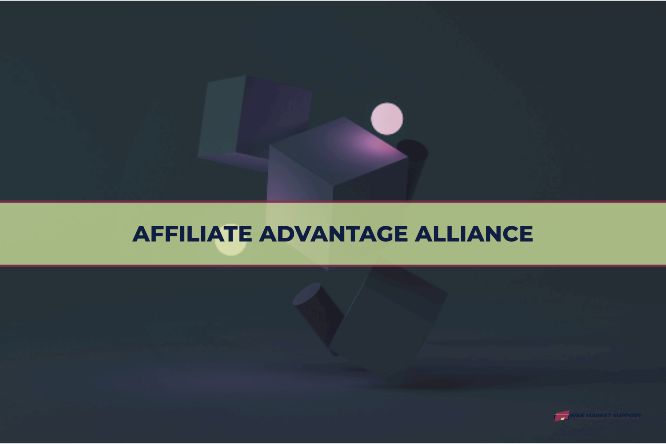




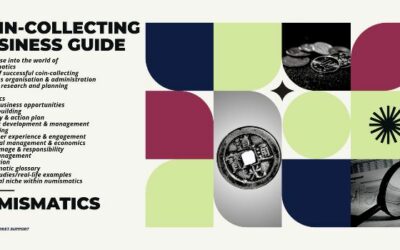
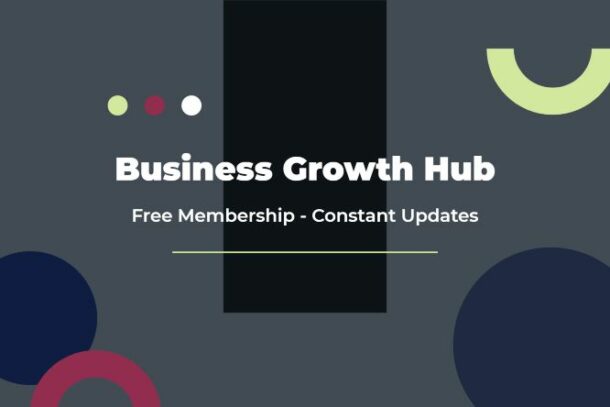
Hi Tasos
I have been in internet marketing a long time now and I have to say I did learn a thing or two from this great article.
I will be re-visiting that’s for sure.
Perhaps your next one can be about White Hats techniques.
Have an excellent day.
Robert Allan
Hey Robert , you are so kind my friend.Thank you for this awesome interruption , I am so glad you enjoyed it.All my best wishes and good luck.
I remember when black hat SEO tactics were making people lots of money, but just as fast as that money came, that same money was lost. Much like any other criminal activity.
While black hat SEO tactics aren’t necessarily illegal, I do agree that one should avoid them altogether. Successful businesses are built by doing things the right way.
I agree , whenever I hear a story of someone that earned a lot of money in a very short period of time , the result is money lost…
Well , these tactics are not exactly illegal , but unethical yes.They do punish these actions and they do very well.You can’t take advantage by fraudulent techniques to others.As you say , Christian , successful businesses are built the right way..
Thank you for your time in reading this long article and for your participation.Good luck to whatever you do.
I can remember back in 2008, when I first started trying to make money online, I briefly tricked my way to the top of the Google search results using hidden keyword stuffing. I create an ad on the site USFreeAds and repeated my main keyword many times in white text so that it fooled Google. I was on page 1 of the results really quickly, but I only lasted a day or two, before having my ad removed by USFreeAds. The fact that they noticed before Google did just goes to show how Google’s search algorithm was much simpler in those days. I’m glad things have changed, aren’t you?
Did you do that really Marcus?…I am glad you confess your previous experience.Indeed , that shows how simpler was Google’s algorithm few years ago.I am happy that they changed and that they filter out a lot of spammers and scams.Google follows quality and that is the road to improvement.
Now only those who help and are ethical can move on forward.
Thank you for re-visiting my blog and for sharing your story with me.
Very, very interesting stuff on topics that could land you in a great deal of trouble with Google. I have encountered the mentioned link farms on numerous occasions – many times they are disguised as pro link building services but in reality they will damage your site! I’ve also encountered many of those blog comment spams – none of them make any sense when read
Hello there Chris , I agree , if you get involved with these techniques you risk a lot for your website performance.The showcase of pro link building services sounds very appealing , who does not want to improve his website.But there are some things to consider before you invest.And those comments that do not make any sense is a daily routine.
Thank you for visiting my blog and for sharing your experience.
Excellent article!
I was sure that these techniques existed as people are always trying to achieve success without working for it. I didn’t realize there were quite so many tactics in play. I am glad people and companies are looking for ways to prevent this. Again great article, thank you! I enjoyed reading it!
Welcome Aaron , yes , this is a fact , there is a percentage of people that want money the easy way , trying to find shortcuts.Of course they always update and renew their tactics , we all have to beware of.
Thank you for visiting my blog and for your participation.
Hey Tasos,
This is a great post. Good job.
Very comprehensive!
I’ve never seen one with this much detail.
I didn’t know there were so many black hat techniques.
The one I almost used was the link farms technique. But I’ve heard that Google can now detect that sort of thing.
Now I’m going for the white hat stuff. Like the Sky Scraper Technique.
What are your favorite SEO Techniques?
Hey there Julian , I would not try black methods even if the search engines could not be able to detect.I want to offer value and only that.My favourite method is blogging frequently.I believe that method brings the best of the results.Of course I use low competition keywords whenever it is possible.
Thank you for another visit , for your kind words and the support.
Hi Tasos,
Great and detailed article! I had heard about some of the techniques that Black Hat SEO involves, but nothing to this extent until reading your article.
Well put together and easy to follow, I now am a much more informed online marketer! I feel like you do, I will stick pretty much to white hat SEO , thank you!
Nowadays the bots are getting better and better, so using these techniques could really bring down your entire business fast! Just not worth it!
Having said that, backlinks are not all bad, and can help your site if done properly. There is still value in getting a backlink from authority sites I think, as long as they are related to what you have on your site, etc.
Also a whole new world (OK not so new, but ever more pertinent) is the social links. As people’s internet use morphs into more and more interaction using sites such as FaceBook, Twitter, Google + etc., the search engines have to take this into consideration when they set up their algorithms….
Good stuff here and I appreciate your effort. I have bookmarked this site, I will be back again, Have a great day!!
Cheers!
Dave
Hello there Dave , indeed there are so many techniques of this kind and I believe everyday they are inventing new ones.As long as the search engines are improving their algorithms these “Black” webmasters are working harder on how to trick these algorithms.But instead , they could be using their time into building something useful.I guess , this is how they proceed with their businesses.
I agree with you that backlinks from authority sites are very useful , as long as they come naturally through genuine channels.I have published a related article on that matter , you can have a look here if you want.
And as concerns the social networks I believe the search engines already include information that comes from these channels into their ranking factors.Google now is showing up some Tweets in addition to the G+ posts and the YouTube results.As marketers we have to work on every possible direction and build useful content on all of these networks.
I am glad you found that article valuable and I want to thank you for visiting my blog and taking the time to participate with your meaningful comments.I wish you good luck with your projects.You are welcome any time.
Dear Tasos,
Wow, just wow, amazing quality content being presented here. I never heard of black hat seo techniques before. Sounds like a sniper or thief in appearance and actions. It is a shame that people still want to attempt copy/pasting someone else’s hard work as their own. They have to realize that they can’t get away with it since Google is smart enough to track them down and punish them. I never realized how little I knew about this going on until I landed on your article now.
Thanks so much for your time/efforts going into great emphasis on explaining all this for us. 🙂
Wishing you all the best with your online success above and beyond the horizon,
~Angel
That is awesome Angel , seeing you find value in my article.Yes , I agree , they must be ashamed of their actions , and especially about copying other people’s work and trying to fool the engines and the people.All the dark techniques are being used by scammers , those that want some quick bucks no matter what the consequences are.
Hopefully we can notice dramatic changes from Google , which is a company to praise in my opinion.They do not only use the latest technology for a good purpose , it seems that their personnel make everything that they can in order to bring results to those who work decent and in “Good Will”.They are devoted at what they do , punishing suspicious , sneaky and fraudulent tactics.
This subject is so huge and it expands upon all the businesses we know.
I wanna thank you for visiting my blog , for your beautiful and enthusiastic comments , this is so kind of you.I wish you in my turn all the best.
Cheers
Hi Tasos,
This was an extremely thorough article that I really enjoyed reading. I really like that you’ve covered many areas that I didn’t even realize existed. I’m curious as to which techniques you find to be the best in order to get to the top of the SERP’s in an ethical manner?
Thanks,
Kevin
Hi there Kevin ,I am so glad you found that article interesting.
My top priority is the content.I am focusing on the quality , to provide decent solutions.I just pick a keyword and that’s it.I place it in my title and then I only write in a human way trying to engage with the people not worrying of other factors at all.And from my experience so far I am getting rewarded.Because when I enter Google or Bing Webmaster Tools I can see my site ranked for way more keywords , with many of them on page 1.The engines know how to rank you and they will rank you for many keywords that you did not ever think of.
I wanna thank you for visiting my blog and for sharing your thoughts.
Great article on SEO – there’s a lot of reading but I certainly learned a fair bit about what not to do! Many of the points you made are actually recommended techniques on other websites that claim to know how to manage the search engines! If people are using them they are only hurting their chances of good rankings – definitely buyer beware out there!
Yeah it is a very long article but I think it is one of the most important subjects not only in internet marketing but in entrepreneurship in general , because black hats are everywhere.And it is quite annoying that there are so many websites , as you clearly stated , that adopt these techniques , they teach them to new marketers , of course to make a profit out of it.They do not care if these techniques will harm your website in the long run and they pretend to appear as masters or gurus.
Thank you Sara for taking the time to read my article and for sharing your thoughts here , let’s hope that in the future people will only buying “White” hats , besides white is not absorbing so much sun heat after all.
Thanks for letting us newbies and wannabes know about these horrible and ineffective SEO tactics. I once (OK, more than once) fell victim to these practices over and over for a long time. I eventually (through Wealthy Affiliate) learned how to do things the right way and I finally have a website that I am proud of. Your articles are exactly what people need to read to avoid the pitfalls that so many hopeful online entrepreneurs need to avoid.
Welcome to my blog Roland , I am very glad you found value on this article.Yeah , these all SEO tactics are not only ineffective but they can damage websites and rankings.Besides there is no search engine that is not looking for quality and so do the people.Too bad you have been a victim too , but I am not surprised as the majority of the people involved on online quests one way or another had been tricked by masters of this kind , myself included.
Definitely Wealthy Affiliate shows the right , decent and human way to provide quality to your visitors.You are proud of your website and you will continue to be as you keep on working and engaging.
Thank you for stopping by and for sharing your experience and for your lovely words of course.